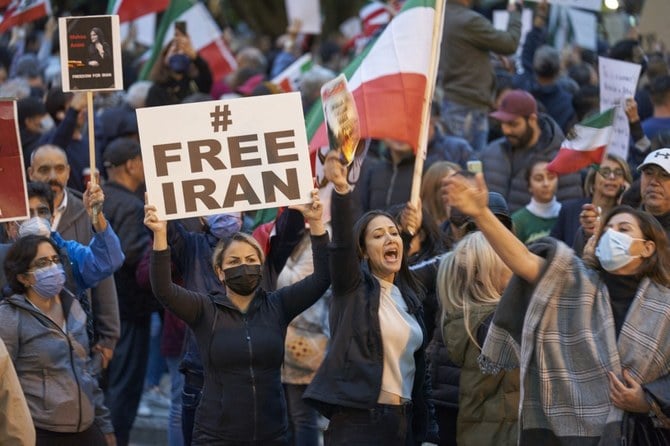
To begin with, this analysis should not be understood as a sure thing that the Iranian regime is crumbling and about to collapse. The truth is that Tehran regime is strong in its structures and services, and it represents a strong sector that cannot be easily removed by demonstrations.
However, the importance of the current popular protests, which took us by surprise once again as it did in 2009, is that it could be a factor leading to partial or total change later in the future.
Before discussing the repercussions of the popular movement on our region, we must consider its effects on Iran and its regime which consequently affect us. There are many possibilities in this case.
First of all, there is a possibility that the security forces will be able to suppress the demonstrations as they did eight years ago, without hesitating to kill unarmed protesters in front of mobile cameras.
The second option is that the regime will offer some concessions to absorb the crisis, such as dismissing President Hassan Rouhani and his government. The third possibility is that the demonstrations expand and become more violent, benefiting from the struggle between internal forces within the regime itself, whether the Revolutionary Guard Corps or the army over which will dominate the system.
The fourth, and unlikely to happen, choice would be the total collapse of the Iranian regime, turning the situation into one similar to Libya and Syria.
Overall, the incidents in Tehran have been painful and have shaken the confidence in the regime of the majority of the Iranians and the outside world. The regime, hence, is forced to reconsider its position even if it succeeded in ending the demonstrations in the next few days.
President Rouhanis recent statement indicated that the government had to listen to its people. However, in both the third and fourth possibilities, a certain party controlling the regime would have serious ramifications on Iran and the whole region.
As for us, and I mean the states in the region especially the Arab states, the ideal situation would be that the current regime doesnt totally collapse but change its foreign policies and put an end to its hostile projects.
This may seem strange, but the region is already suffering from a great deal of destruction and cannot afford new chaos, additional civil wars, and millions more of refugees. However, if the popular Iranian uprising succeeds in changing Iranian foreign policies and ending its foreign operations, and forces the regime to focus instead on internal reform and development, this will be the ideal option compared to the horrific scenario of regime collapse.
The fault in this hypothesis is within the nature of the Iranian regime which is not civil and incapable of changing itself. Tehrans regime is rather theological and relies on force; i.e. a fascist theological regime.
It would be quite hard for the regime to reform its thoughts and views of the world. This is an issue the supreme leadership of Iran, which must be in permanent session due to the dangerous developments, needs to discuss.
If the regime manages to contain the crisis and benefit from its lessons, it may survive. However, if it insists on confronting the demonstrators with bullets, and possibly with scapegoats to satisfy the angry crowds, nothing guarantees that more popular explosions will not erupt in the future.
The leaders of the Revolutionary Guards, together with the supreme religious leadership, are apparently arrogant, thinking they can expand the republic and make it a regional empire, geographically occupying other regional states, capable of competing with international powers and threatening their interests in the Middle East, seeking to besiege Saudi Arabia and threatening Israel, and fighting multiple simultaneous wars.
This is the way arrogant people think, oblivion to the limits of Iranian power in a country whose people are suffering, and economy is considered to be one of the poorest regionally.










